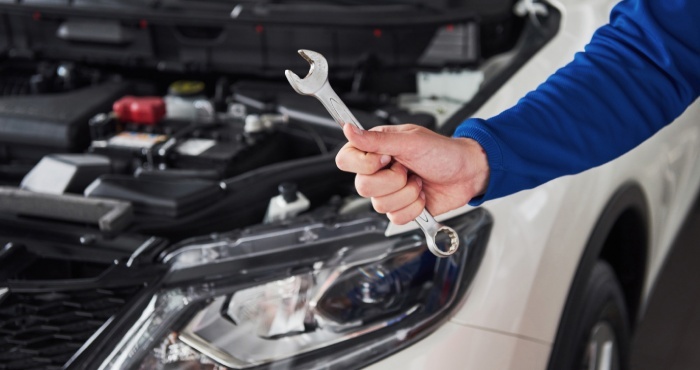Acquiring a car can bring about a mix of thrill and anxiety, particularly when it involves transactions between private individuals. Although California’s Lemon Law provides strong safeguards for consumers purchasing flawed vehicles from dealerships, its relevance to private sales is more complex. It’s important for anyone thinking about buying or selling a used car privately to grasp how the California Lemon Law interacts with these types of transactions.
This piece delves into the intricacies of California’s Lemon Law, its significance concerning private transactions, and the importance of obtaining professional legal guidance to help buyers make well-informed choices.
What Is the California Lemon Law?
The Song-Beverly Consumer Warranty Act, commonly referred to as the California Lemon Law, aims to safeguard buyers and lessees of faulty vehicles. Should a vehicle exhibit serious defects that hinder its functionality, worth, or safety, and if these issues remain unresolved after several attempts at repair, the manufacturer might be obligated to either replace the vehicle or buy it back.
It is important to note that the Lemon Law typically pertains to vehicles that come with a manufacturer’s warranty. This aspect is particularly significant when considering its relevance to private transactions, where such warranties are frequently missing or restricted.
Does California Lemon Law Apply to Private Auto Sales?
Typically, the California Lemon Law does not extend to private transactions. The reason for this is that individual sellers seldom provide warranties, which are usually a prerequisite for Lemon Law protection. When purchasing a vehicle from a private party, it is generally sold “as is.”
Clarifying “As-Is” Sales
In the context of a private sale, “as-is” signifies that the buyer consents to accept the vehicle in its existing state, without any assurances from the seller regarding its functionality or dependability. This effectively eliminates any claim under the Lemon Law unless the seller explicitly offers a warranty or falsely represents the car’s condition.
When Does the Lemon Law Apply in Private Sales?
While it’s uncommon, there are specific situations in private sales where the Lemon Law might be relevant:
- Manufacturer’s Warranty Transfer: The Lemon Law could be applicable if the vehicle remains under the original manufacturer’s warranty.
- Seller Misrepresentation: If the seller intentionally hides significant defects or gives misleading information, you may have grounds for legal action based on fraud or consumer protection statutes, even if the Lemon Law itself doesn’t apply directly.
Buyer Beware: Risks of Private Auto Sales
Purchasing a vehicle from a private seller carries specific dangers:
- Absence of Warranty: Typically, private transactions are conclusive, placing the burden of any subsequent problems on the buyer.
- Reduced Options for Resolution: In the absence of Lemon Law safeguards, addressing conflicts can become more challenging.
- Concealed Issues: Private sellers might not reveal every flaw, particularly if they are oblivious to them or opt to withhold information.
Protecting Yourself in a Private Sale
To reduce potential risks, purchasers ought to engage in the following proactive measures:
- Obtain a Vehicle History Report: Utilize platforms such as Carfax or AutoCheck to uncover any previous accidents, title discrepancies, past Lemon Law claims, or detailed vehicle history reports.
- Conduct a Comprehensive Inspection: Arrange for a reliable mechanic to perform a pre-purchase assessment to detect any possible issues.
- Confirm Warranty Status: Determine if the vehicle remains under the manufacturer’s warranty, as this could offer additional security during a private transaction.
- Create a Sale Record: Prepare a bill of sale that outlines the vehicle’s condition and documents any verbal agreements made.
Legal Protections Beyond Lemon Law
Although the California Lemon Law is not applicable to private car transactions, purchasers have alternative legal options available if issues arise:
Fraud Allegations
In instances where the seller deliberately misstates the vehicle’s condition or hides existing problems, buyers can file fraud allegations. This requires demonstrating that the seller was aware of the issue and chose not to reveal it.
Consumer Protection Regulations
California’s consumer protection statutes, including the Unfair Competition Law (UCL), can offer further remedies if a seller partakes in dishonest practices.
Minor Dispute Resolution
In cases where the monetary stakes are low (limited to $10,000), consumers have the option to submit a claim to minor dispute resolution court. This serves as an economical method for pursuing reimbursement for hidden flaws or violations of contracts.
When to Seek Expert Legal Advice
Small Claims Court
Understanding the intricacies of Lemon Law, private transactions, and various legal safeguards can be quite difficult. Seeking guidance from a lawyer who focuses on consumer rights or Lemon Law is usually the most effective way to explore your options.
The Importance of Legal Guidance
- Evaluating Your Situation: A lawyer can assist in determining if you have a valid claim under Lemon Law, a case of fraud, or any other legal recourse.
- Settlement Negotiations: California Lemon Law attorneys can negotiate with sellers for faster dispute resolution on your behalf.
- Litigation Representation: If needed, a lawyer can advocate for you in court to seek compensation for your losses.
Tips for Making Informed Decisions
When engaging in private car transactions, being well-informed is crucial. Here are some guidelines to help you through the process:
- If you’re purchasing a vehicle: Make sure to investigate the car’s background, arrange for an inspection, and keep thorough records of the sale.
- If you’re selling a vehicle: Honesty about the car’s state is essential to prevent any legal issues. Share any known problems and ensure all details are correct.
A California Lemon Law lawyer can help clarify the protections available under the law, especially when it comes to private auto sales, where the coverage is more limited. Understanding the differences between dealer and private sales allows buyers to make informed decisions and avoid costly mistakes.
When contemplating a private car purchase, it’s important to thoroughly investigate, examine, and confirm the vehicle’s state. Should you encounter any conflicts, don’t hesitate to consult a legal professional to discuss your alternatives.





